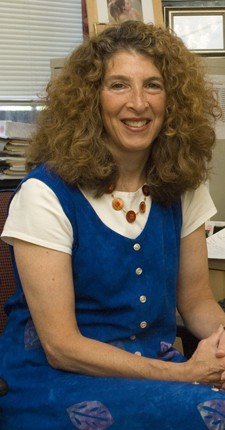Putting a Stop to Suicide
The college years can leave some students feeling depressed, alone, and even suicidal. BU offers help.

The college years are a time of great flux. Students are living on their own for the first time, and many haven’t settled on a major, let alone a career. It’s also a time when many major psychiatric illnesses first manifest themselves. The mounting pressures of young adulthood, coupled with mental illness, can lead some college students to suicide, the second leading cause of death among this age group, behind auto accidents, according to the Suicide and Mental Health Association International (SMHAI). National Suicide Prevention Week, September 9 to 15, 2007, is observed annually to promote awareness about suicide and ways to prevent it.
Suicide rates in young people have more than tripled in the past 30 years, according to SMHAI. The most dramatic increase occurred in two traditionally college-age groups: among 15-to-24-year-olds the rate shot up 312 percent, and among 20-to-24-year-olds the rate went up 163 percent.
“The years that a student is in college are complex developmentally, because a student is sometimes beginning to really forge an individual identity, and that can be fraught with some angst and some difficulty,” says Margaret Ross, director of behavioral medicine at BU’s Student Health Services. “It’s sometimes the first time the student has been far from home, if not geographically then emotionally, and trying to manage daily living without anyone there to help can be challenging and sometimes stressful.”
Students also have lots of questions about their future, says Ross, and yet they don’t have the experience to know that they can handle life’s challenges.
“What people want to do with their lives is harder to figure out,” she says. “A lot of young people are doing amazing things around the world to make it a better place, but the options are so huge — going abroad, doing AIDS research in Rwanda — people are expected to grow up quickly in order to accomplish these very big goals.”
Ross adds that young people today face mounting external stresses that previous generations didn’t: the sexual revolution, which has led to confusion about gender roles; a greater expectation of using drugs and alcohol; difficulties in managing finances; and the increasing dissolution of the nuclear family, which has led to increased instability among young people.
“Growing up is challenging in general, but there are many factors that make it harder to come of age now,” says Ross. “Technology has made the pace of life so fast. There is the expectation that things are turned around instantly, and there is never a break or a time to relax.”
And this is just the case for young people dealing with “normal” issues, Ross says. But some students face mental illnesses, many of which develop during the late teens and early 20s. “It’s just the natural history of these illnesses,” she says. “Someone might have a first episode of bipolar instability or an underlying disorder, such as schizophrenia or an anxiety disorder.”
BU students can find help, says Ross. “There is always someone to go to, there is always a reason to hope, and always a way out of suicide,” she says. Since arriving on campus in late July, she has been impressed with the number of organizations that offer assistance, such as Student Health Services, the Office of Residence Life, the Office of the Dean of Students, the Center for Anxiety and Related Disorders, and the Danielsen Institute.
“It doesn’t matter where a student goes first, there is always help,” Ross says.
Meghan Noé can be reached at mdorney@bu.edu.